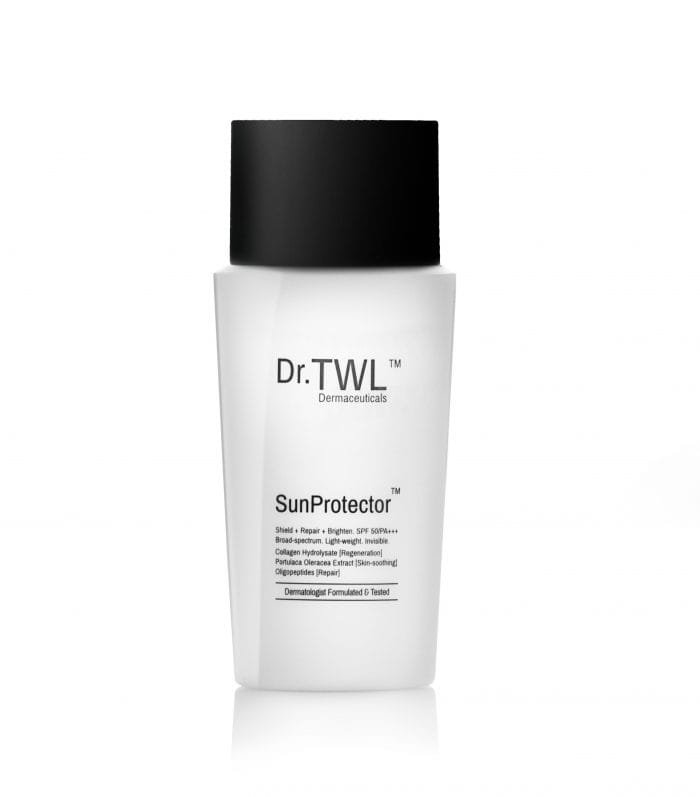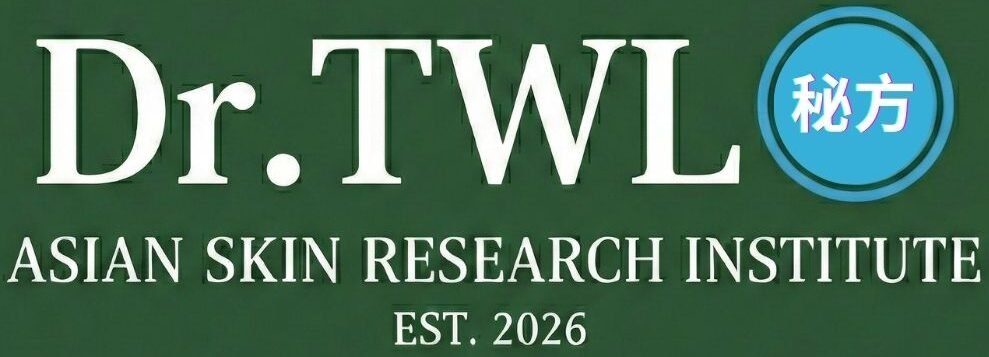The old adage ‘you are what you eat’ has never been so true when it comes to skincare. Research has proven that an imbalanced balanced diet and bad eating habits are important factors in skin aging. In this article, we will explore the science behind an anti-aging diet, and the antioxidant-rich superfoods that play a part in your skin’s health.
Our skin is the largest organ in our body, and the primary line of defence that protects the body from external aggressors. Skin aging is a complex process, and can be categorized by chronological aging, and photo-aging, which can be affected by both internal and external factors. As the main way for our body to get the energy and nutrients it needs for function, people have gradually realized our diet’s importance to the skin.
Skin Aging
UV exposure induces oxidative stress in the skin, which eventually, leads to skin inflammation. When the degree of inflammation exceeds the defenses of the body’s immune system to clear up, immune cells such as macrophages begin secreting pro-inflammatory factors and free radicals, accelerating skin inflammation and injury. This process is known as inflammaging.

The Dr.TWL SunProtector is formulated with physical blockers like titanium dioxide and zinc oxide that effectively blocks UV radiation. Portulaca Oleracea (Purslane) and Oligopeptides in our SunProtector are potent antioxidants which actively fight free radicals generated by UV exposure as well as airborne pollutants – for comprehensive protection.
DNA damage to the skin is manifested as photo-aging in the form of wrinkles, loss of elasticity, irregular texture, hyperpigmentation. These are a result of oxidative stress that cannot be repaired at the same rate as a younger person’s skin. Superfoods with a high antioxidant concentration can actually help to boost these processes of DNA repair and combat the results of free radical generation.
“Sunscreen itself performs a fundamental role of protecting your skin from damaging ultraviolet radiation. Both UVA and UVB have been implicated in photoaging. As well as in carcinogenesis, which is a process of skin cancer formation. Simply put, when we have ultraviolet radiation exposure, as we grow older, our skin becomes less and less able to handle the oxidative stress and the ensuing free radical generation. All of which permit DNA damage to occur at the cellular level,” accredited dermatologist Dr. Teo Wan Lin. Listen to our podcast Dermatologist Talks: Science of Beauty Ep 34 where Dr. Teo discusses more about photoaging and sun protection.
Anti-aging diet: What are superfoods?
Skin health is influenced by your genetics, your lifestyle, which incorporates your diet, as well as factors such as how frequently you exercise and the type of exercise. These factors influence skin health, which in turn affects skin aging. Additionally, skincare which includes topicals being applied to the skin, plays a role in skin aging as well. These are more precisely termed as dermocosmetics or cosmeceuticals, which have pharmaceutically active properties in over the counter cosmetics.
Superfoods, with the exception of fish, are mostly plant-based foods that are nutritionally dense and confer many benefits to your overall health, and in this case, the skin. We are well aware that proper nutrition is critical for the healthy functioning of the body systems. We also know that as our body ages, every single organ ages in tandem with our biological clock as a result of both genetic as well as environmental factors.
The free radical theory of aging states that organisms age because cells accumulate free radical damage over time. A free radical is an atom that is unstable because it has only one unpaired electron in its shell rather than two. They can interact with DNA, proteins and fatty acids in the body, causing breaks in the DNA chain, protein-protein linking and oxidative damage. Oxidative stress, therefore, eventually leads to aging, so foods that contain antioxidants have been a key topic of research. Here are some of the natural antioxidants and their effect in alleviating skin aging.
Which is better for my skin, eating superfoods or using skincare products?
In relation to an anti-aging diet, it is crucial to note that the use of skin products has one very specific advantage, it is directly applied to the skin. Because the stratum corneum is designed in a way that is able to absorb what’s applied to it, we expect that if you’re using pharmaceutically active ingredients, cell changes can be positively manipulated to benefit your skin health and reduce oxidative stress. Skincare on its own is a critical part of the maintenance of the skin barrier, which is the way your body protects itself from the external allergens from any adverse environmental exposures. If that barrier is depleted, then we certainly expect that your skin will malfunction.
The short answer to this complex question is you cannot have healthy skin with a poor diet when you’re older. Unless you’ve won the genetic lottery and there are definitely individuals who eat junk food and yet still have very good skin. However, their overall health will suffer. If your health is poor, your skin will also age as you grow older. Therefore, the bottom line is that eating superfoods is more effective in the long run.
What consists of an anti-aging diet?
There are certain combinations of superfoods for the best results. For example, the well-known rainbow diet, which includes lots of different colours in your diet. It stems from the presence of carotenoids and anthocyanins in colored fruits and vegetables.

There has yet to be a study that talks about the proportion of all these superfoods in a diet. However, what studies have actually shown is that when they incorporated a nutraceutical dietary intervention in an aging population, there were significant overall psychological and physical benefits. It suffices to say that everything in the plant and the mushroom kingdom has antioxidants and is suitable for an anti-aging diet.
Many of these, such as broccoli, cabbage, kale have been classified as superfoods because of the dense nutritional content per gram of the food that’s being served, as well as unique actives that are present in these vegetables that help to fight oxidative stress. In particular, we know that studies have been done on broccoli and the cruciferous vegetables of the Brassica family that show that it actually has cancer-fighting properties. This can therefore help in your anti-aging diet.
What are the best superfoods for my skin?
It’s good to focus on the different colours of foods. There are the brightly colored carotenoid-rich fruits and vegetables in orange, red and yellow. As well as anthocyanin-rich blue, purple produce such as blueberries and beetroot. Soya, in particular, is a phytoestrogen, having a positive benefit on your skin. There have been studies done in Japan on the benefits of consuming soy products such as miso or soy beans, when it comes to anti-aging.
How long does it take to see the results of a superfood-rich anti-aging diet?
Studies have to be done for a dermatologist to categorically state that there is a specific time period after which we expect to see results, and these are not available at the moment. It’s also very difficult to conduct such a study because of many confounding factors, such as there not being a standardised ‘superfoods diet’.
Instead, the importance of nutraceuticals in your diet should be highlighted, as they affect your body systemically. Nutraceutical intervention can be a potential active therapy to address the lifestyle component of the skin exposome concept, which explains the skin aging process.
On the other hand, skincare products are a lot more measurable in terms of what we expect to see. For example, in my clinic and my skincare arm Dr.TWL Dermaceuticals, we use retinoid-like peptides. However, they do not contain retinoid or retinol side effects such as irritation. Usually, within two to three weeks of using the topicals, the individual will have a subjective improvement in skin hydration, elasticity, and radiance. Additionally, there have been studies showing cells in a lab environment as well as in clinical studies, where results are actually measurable as well.
Grow your own food
Understanding the benefits of an antioxidant-rich, anti-aging diet, how do you go about incorporating more of these superfoods into your diet? According to research conducted by University of Florida Institute of Food and Agricultural Sciences in 2016, gardening and growing your own food helps people develop a lasting habit of eating enough fruits and vegetables.
Furthermore, you get to decide what kinds of fertilizers and pesticides come into contact with your food. Commercial produce breeders often develop new varieties based on high yields and fast growth. In this process, there might be a compromise of nutrients and flavor. In your own garden, you can pick the variety that’s important to you, and be able to have the farm-to-table experience right at home.
Living in an urban area like Singapore, having a garden may not be a viable option. Instead, opt for urban farming with the easy-to-assemble SOLAR-ALGA Organic Urban Tower Farm. The first certified organic system, It is a compact hydroponic and aeroponic system that grows 45 different plants in just 0.14sqm of space.
Complimentary with the SOLAR-ALGA, grow your own fruits and vegetable seedlings such as spinach, cucumber and cauliflower in the Mira-Sponge seedling Nursery. Get a head start on growing your own food for an anti-aging diet with the MiraFoam tray, providing the perfect micro environment for seedling germination and growth.
